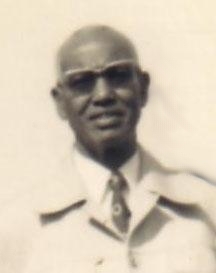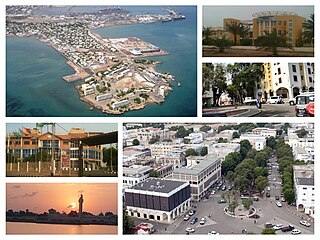
Politics of Djibouti takes place in a framework of a presidential representative democratic republic, whereby the executive power is exercised by the President and the Government. Legislative power is vested in both the Government and the National Assembly. The party system and legislature are dominated by the socialist People's Rally for Progress. In April 2010, a new constitutional amendment was approved. The President serves as both the head of state and head of government, and is directly elected for single six-year term. Government is headed by the President, who appoints the Prime Minister and the Council of Ministers on the proposal of the latter. There is also a 65-member chamber of deputies, where representatives are popularly elected for terms of five years. Administratively, the country is divided into five regions and one city, with eleven additional district subdivisions. Djibouti is also part of various international organisations, including the United Nations and Arab League.

Ismaïl Omar Guelleh is the current President of Djibouti, in office since 1999. He is often referred to in the region by his initials, IOG.
The National Democratic Party is a political party in Djibouti. It was founded as an opposition party in 1992 by Aden Robleh Awaleh, who remains the party's president. It was part of the ruling coalition in 2005, but has since rejoined the opposition against President Ismaïl Omar Guelleh.

Hassan Gouled Aptidon was the first President of Djibouti from 1977 to 1999.
The Republican Alliance for Democracy is an opposition political party in Djibouti, founded by Ahmed Dini Ahmed. In the parliamentary election held on 10 January 2003, the party was part of the Union for a Democratic Change, which won 37.3% of the popular vote but no seats in the National Assembly.

A parliamentary election was held in Djibouti on 8 February 2008. There were 65 candidates running for the 65 seats in the National Assembly, with all of the candidates coming from the ruling coalition, the Union for the Presidential Majority (UMP). The opposition boycotted the election, and the UMP won all 65 seats.
Moumin Bahdon Farah was a Djiboutian politician and the President of the Social Democratic People's Party (PPSD). He was Minister of Foreign Affairs from 1978 to 1993 and Minister of Justice from 1993 to 1996. Currently, he was a member of the National Assembly of Djibouti.
Ali Mohamed Daoud, also known as Jean-Marie, is a Djiboutian politician and the President of the Front for the Restoration of Unity and Democracy (FRUD). He is currently a member of the National Assembly of Djibouti.

The 2005 Djiboutian presidential election took place on the 8 April 2005. The incumbent President of Djibouti, Ismail Omar Guelleh, was re-elected to a second six-year term in an unopposed election.

Voters in Djibouti re-elected President Ismail Omar Guelleh by an 80% margin in that nation's April 8, 2011 presidential election. He defeated Mohamed Warsama Ragueh, an attorney and former judge who took 19% of the vote.

The 2011 Djiboutian protests were widespread demonstrations and riots that took place between January and March 2011 in Djibouti, situated in the Horn of Africa. A member of the Arab League, the protests in Djibouti showed a clear influence from the concurrent Arab Spring protests in North Africa and the Arabian peninsula. The demonstrations ended after mass arrests and the barring of international observers.

Parliamentary elections were held in Djibouti on 22 February 2013. After their boycott of the 2008 elections, opposition groups contested the elections as the Union for National Safety alliance.

Parliamentary elections were held in Georgia on 8 October 2016 to elect the 150 members of Parliament. The ruling Georgian Dream coalition, led by Prime Minister Giorgi Kvirikashvili, sought a second term in office. Opposition parties included the former ruling party and main opposition, the United National Movement (ENM); the Free Democrats, formerly a member of the Georgian Dream coalition and led by Irakli Alasania; and the Alliance of Patriots of Georgia.

Presidential elections were held in Djibouti on 8 April 2016. Incumbent President Ismaïl Omar Guelleh was re-elected for a fourth term, receiving 87% of the vote in the first round.

Parliamentary elections were held in Djibouti on 23 February 2018. The election was boycotted by the main opposition parties, including some of the parties in the Union for National Salvation coalition, which had won 10 seats in the previous elections in 2013.












